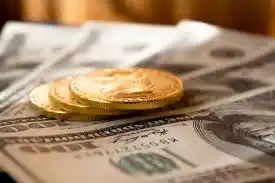Appreciation in Economics || Examples || Impacts, and Differences

In the world of economics, appreciation is a crucial concept that affects the value of assets, currencies, and economies as a whole.
Whether you’re an investor, a business owner, or simply interested in understanding the dynamics of economics, knowing what appreciation entails is essential.
In this article, we’ll explore the meaning of appreciation, provide examples of appreciation and depreciation, discuss how appreciation benefits an economy, highlight the differences between depreciation and appreciation, delve into the two types of appreciation, and uncover the real meaning behind this economic phenomenon.
Appreciation in Economics
Appreciation, in economics, refers to an increase in the value of a currency, asset, or investment over time.
It occurs when the demand for a particular item exceeds its supply, leading to an upward shift in its price or value.
Appreciation is a result of various factors such as market conditions, inflation rates, political stability, and investor sentiment.
Examples of Appreciation and Depreciation
To illustrate appreciation, consider the case of a country’s currency.
Suppose a nation experiences robust economic growth, attracting foreign investors who demand its currency for trade and investment purposes.
As a result, the value of the country’s currency appreciates against other currencies, making imports cheaper and boosting the nation’s export competitiveness.
Conversely, depreciation occurs when the value of a currency, asset, or investment declines over time.
A prime example is when a country faces economic instability, political turmoil, or inflationary pressures.
These factors can cause investors to lose confidence, leading to a decrease in demand for the currency and subsequent depreciation.
How Appreciation Benefits an Economy
Appreciation can have several positive effects on an economy.
Firstly, it enhances the purchasing power of consumers by making imported goods and services relatively cheaper.
This increased purchasing power can stimulate consumption, drive economic growth, and create employment opportunities.
Additionally, appreciation can attract foreign investors seeking higher returns on their investments.
When a country’s currency appreciates, it offers a favorable exchange rate for foreign investors, encouraging them to invest in the country’s businesses, infrastructure, and financial markets.
These investments can contribute to economic development and boost local industries.
Differences between Depreciation and Appreciation
Depreciation and appreciation are two contrasting concepts in economics.
Depreciation refers to a decrease in the value of a currency, asset, or investment, while appreciation signifies an increase in value.
Depreciation is often associated with economic downturns, inflation, or negative market sentiment, whereas appreciation is indicative of economic growth, stability, and positive market conditions.
Two Types of Appreciation
In economics, appreciation can be classified into two types: nominal appreciation and real appreciation. Nominal appreciation refers to an increase in the value of a currency concerning other currencies.
Real appreciation, on the other hand, takes into account inflation rates and adjusts for changes in purchasing power. Real appreciation is a more accurate measure of the currency’s value in terms of goods and services.
The Real Meaning of Appreciation
Beyond the economic realm, appreciation holds a broader meaning. It refers to expressing gratitude, recognizing the value or qualities of something or someone, and acknowledging their contributions.
While the focus of this article has been on appreciation in economics, it’s crucial to remember the importance of expressing appreciation in our personal and professional lives.
FAQ
What is currency appreciation?
Currency appreciation refers to an increase in the value of a currency relative to other currencies, resulting from market forces such as supply and demand.
How does appreciation affect imports and exports?
Appreciation makes imports cheaper and exports relatively more expensive, potentially leading to a decrease in imports and an increase in exports.
Can appreciation negatively impact an economy?
While appreciation can have positive effects, it can also make exports less competitive, leading to decreased export revenues and potentially impacting industries reliant on exports.
How does appreciation impact tourism?
Appreciation can make traveling to a country more expensive for foreign tourists, potentially affecting the number of visitors and tourism-related revenues.





